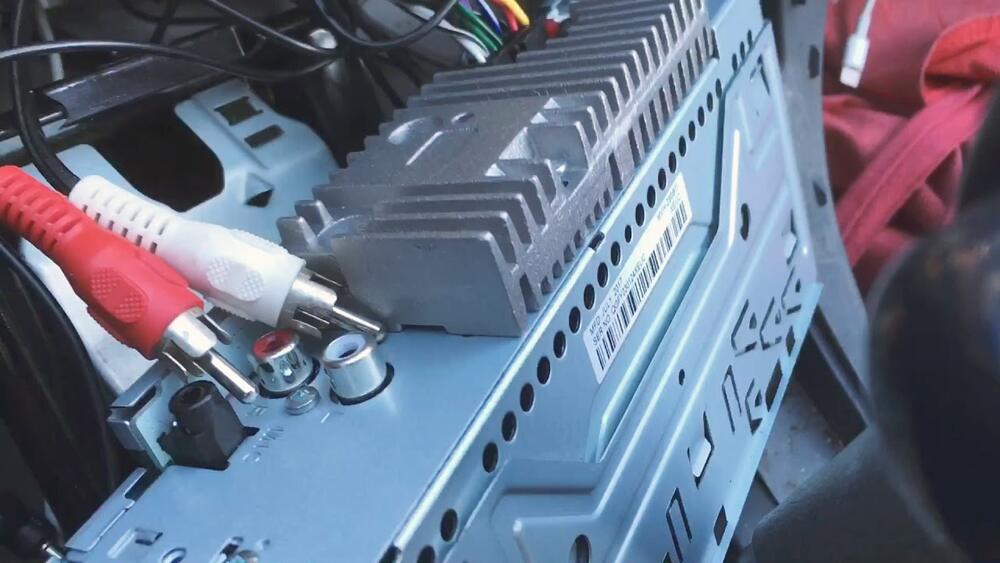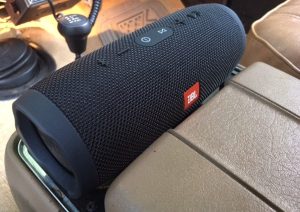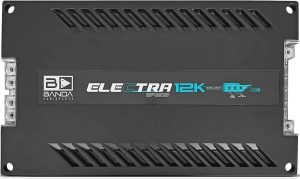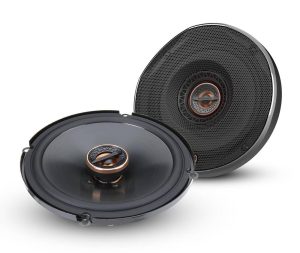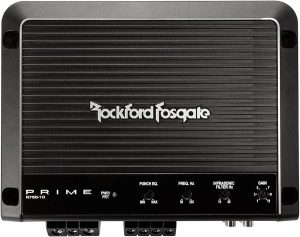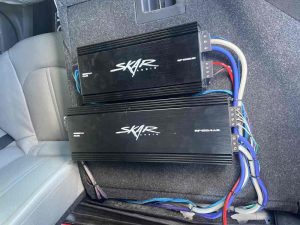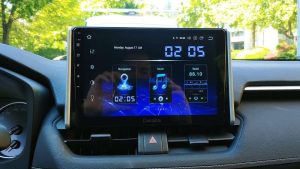You’re cruising down the road, enjoying your favorite playlist, when suddenly a high-pitched whining noise creeps into your car speakers. The sound intensifies as you press the gas pedal, turning your relaxing drive into a frustrating experience. This issue, often described as speaker whine or alternator noise, plagues many drivers. Fortunately, you can identify the root cause and fix it with practical solutions. This guide dives deep into why your car speakers emit a whining noise when accelerating, explores common culprits, and provides actionable steps to restore crystal-clear audio. Let’s get started.
Contents
What Causes Whining Noise in Car Speakers?
A whining noise from car speakers typically stems from electrical interference within your vehicle’s audio system. When you accelerate, the engine and electrical components work harder, amplifying this interference. The noise often mimics the engine’s RPM, rising and falling as you speed up or slow down. Below, we break down the primary causes of this annoying sound.
1. Alternator Interference
The alternator, which powers your car’s electrical system, often causes speaker whine. As you accelerate, the alternator spins faster, generating more electricity. This process can introduce electrical noise into the audio system, especially if the alternator’s grounding is poor. The noise travels through the power lines, reaching your stereo and speakers.
2. Ground Loop Issues
A ground loop occurs when different components in your audio system have mismatched grounding points. This creates a loop where unwanted electrical currents flow, producing a whining or humming noise. Accelerating exacerbates the issue as the electrical load increases, amplifying the interference.
3. Faulty or Loose Wiring
Loose, damaged, or poorly installed wiring can act as an antenna, picking up electrical noise from the engine or alternator. RCA cables, power cables, or speaker wires running too close to the engine or other high-power components are particularly susceptible. The noise becomes more noticeable during acceleration due to increased electrical activity.
4. Amplifier Problems
If your car has an aftermarket amplifier, it might contribute to the whining noise. Amplifiers boost audio signals, but a poorly grounded or low-quality unit can amplify electrical interference instead. Acceleration increases the electrical demand, making the noise more pronounced.
5. Electromagnetic Interference (EMI)
Modern cars rely on complex electronics, including ignition systems, fuel pumps, and sensors. These components emit electromagnetic interference that can infiltrate your audio system. When you accelerate, the engine’s components work harder, generating stronger EMI that disrupts your speakers.
6. Faulty Head Unit or Stereo
In rare cases, the car’s head unit (stereo) might be the culprit. A malfunctioning or poorly shielded unit can pick up electrical noise, especially during acceleration. Older stereos or budget models are more prone to this issue.
How to Diagnose the Whining Noise
Pinpointing the cause of speaker whine requires a systematic approach. By narrowing down the source, you can apply the right fix. Follow these steps to diagnose the issue.
Step 1: Check the Noise Pattern
Listen closely to the whining noise. Does it change pitch with engine RPM? If the noise rises and falls as you accelerate or decelerate, alternator interference or EMI is likely the cause. A constant hum, unaffected by acceleration, might point to a ground loop.
Step 2: Inspect the Audio System
Turn off the car and visually inspect your audio system. Look for loose wires, damaged cables, or poorly connected components. Pay attention to RCA cables and power lines, ensuring they’re not tangled or running near the engine.
Step 3: Test the Grounding
Poor grounding often causes speaker whine. Check the ground connections for your stereo, amplifier, and speakers. Ensure they’re securely attached to a clean, unpainted metal surface on the car’s chassis. Corrosion or loose bolts can disrupt grounding.
Step 4: Isolate the Amplifier
If you have an aftermarket amplifier, temporarily disconnect it. Play music through the head unit alone. If the whining stops, the amplifier or its wiring is likely the issue.
Step 5: Test with a Different Source
Connect a portable music player or phone directly to the head unit using an auxiliary cable. If the noise disappears, the issue might lie with the car’s wiring or another input source, like a Bluetooth module.
How to Fix Whining Noise in Car Speakers
Once you’ve identified the cause, you can take steps to eliminate the whining noise. Here are proven solutions to restore your audio quality.
1. Install a Noise Filter
A noise filter, also called a ground loop isolator, reduces electrical interference. Place the filter between the head unit and amplifier or between the head unit and speakers. These affordable devices block unwanted frequencies, ensuring clean audio. Choose a high-quality filter for best results.
2. Improve Grounding
Proper grounding eliminates many audio issues. Locate the ground points for your stereo, amplifier, and speakers. Clean the contact area with sandpaper to remove rust or paint. Use a star washer and tighten the connection securely. Consider grounding all components to a single point to prevent ground loops.
3. Reroute Wiring
RCA cables and power lines should never run parallel to each other or near high-power components like the engine or alternator. Reroute RCA cables along the opposite side of the car from power cables. Use shielded cables to minimize interference. Secure all wires with zip ties to prevent movement.
4. Add Ferrite Beads
Ferrite beads clip onto cables and suppress high-frequency noise. Attach them to RCA cables, power lines, or speaker wires near the head unit or amplifier. These inexpensive devices can significantly reduce whining caused by EMI.
5. Upgrade the Alternator
If the alternator is old or faulty, it might produce excessive electrical noise. Have a mechanic test the alternator’s output. Replacing a worn alternator with a high-quality unit can eliminate whining and improve overall electrical performance.
6. Shield the Amplifier
A poorly shielded amplifier can pick up interference. Wrap the amplifier in a grounding shield or move it to a location farther from the engine. Ensure the amplifier’s power and ground cables are as short as possible to reduce noise pickup.
7. Replace Faulty Components
If the head unit or amplifier is malfunctioning, consider replacing it. Opt for high-quality, well-shielded units designed for automotive use. Budget components often lack proper noise suppression, leading to persistent whining.
Preventing Future Whining Noises
After fixing the issue, take steps to prevent it from returning. Regular maintenance and smart installation practices keep your audio system noise-free.
Use High-Quality Components
Invest in reputable brands for head units, amplifiers, and speakers. High-quality components feature better shielding and noise suppression, reducing the risk of whining.
Plan Wiring Layouts
During installation, plan the wiring layout carefully. Keep power and signal cables separated, and avoid running them near the engine or other electronics. Use shielded cables and secure all connections.
Maintain Electrical Systems
Regularly inspect your car’s electrical system, including the alternator, battery, and grounding points. Address issues like corrosion or loose connections promptly to prevent interference.
Schedule Professional Inspections
If you’re unsure about your audio system’s setup, consult a professional car audio technician. They can identify potential issues and optimize your system for peak performance.
When to Seek Professional Help
While many fixes are DIY-friendly, some situations require expert assistance. If you’ve tried the above solutions and the whining persists, a professional can diagnose complex issues like faulty alternators or intricate wiring problems. Look for a certified car audio installer or auto electrician with experience in noise suppression.
Why Addressing Speaker Whine Matters
Ignoring a whining noise might seem tempting, but it can signal deeper electrical issues. Persistent interference could damage your audio components or strain the car’s electrical system. Plus, a clear audio experience enhances your driving enjoyment, making every trip more pleasant.
Conclusion
A whining noise from car speakers when accelerating is a common but fixable problem. By understanding the causes—alternator interference, ground loops, faulty wiring, or EMI—you can diagnose the issue accurately. Solutions like noise filters, improved grounding, and proper wiring layouts restore your audio system’s clarity. Regular maintenance and high-quality components prevent future issues, ensuring your music sounds crisp and clean. Take action today to enjoy a noise-free drive.
FAQs
Q: Can a bad battery cause speaker whine?
A: Yes, a weak or failing battery can cause electrical noise, as the alternator works harder to compensate. Test the battery and replace it if necessary.
Q: Is speaker whine dangerous for my car?
A: While not directly harmful, it may indicate electrical issues that could affect other systems. Addressing it promptly prevents potential damage.
Q: How much does it cost to fix speaker whine?
A: Costs vary. DIY solutions like noise filters or ferrite beads cost $10–$50. Professional repairs, including alternator replacement or rewiring, may range from $100 to $500.
Q: Can I fix speaker whine without technical skills?
A: Yes, simple fixes like installing a noise filter or checking connections are beginner-friendly. For complex issues, consider professional help.
